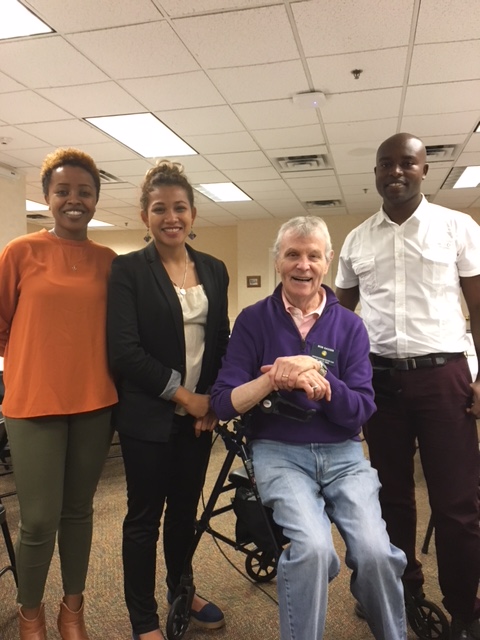What is YALI (From the Dartmouth YALI web page):
For each of the past four summers (2014-2017), the Dickey Center, with multiple partner organizations across Dartmouth, hosted 25 young leaders from countries across Sub-Saharan Africa. They represented a wide range of backgrounds with an incredible array of experiences. These young leaders were among the first cohorts of the "Mandela Washington Fellowship," which is at the center of the United States government's Young African Leadership Initiative (YALI). Since 2014, 3,000 Fellows have participated in the program. Dartmouth's 100 alumni Fellows have represented 35 countries. This summer, we welcomed another cohort of 25 Fellows, hailing from 20 countries.
YALI is a State Department-led program (overseen by the International Research & Exchanges Board—IREX) that is working to provide opportunities to "spur growth, strengthen democratic systems and enhance peace and security." The goals of the Mandela Washington Fellowship are:
- build and sustain a network of young Sub-Saharan leaders
- strengthen ties between Sub-Saharan Africa and the United States
- prepare Fellows for future leadership opportunities in Africa
The Mandela Washington Fellowship is an incredibly selective program. The first year saw a 1% acceptance rate. This year's program brought a total of 700 Fellows to 28 universities throughout the United States to host cohorts who participate in institutes centered on one of three topics: business and entrepreneurship, civic leadership, and public management.
Julie, Jenny, Rotarian Bob Gasser and Joshua
Julie Muriuki is a Rotarian from the Rotary Club of Hurlingham in Nairobi, Kenya. Her club is in District 9212. Professionally, she owns a consulting firm that works with individuals, organizations and communities to design products, services and business models that meet target customer needs. Julie works with start-ups across Sub-Saharan Africa to get them investor ready, then connects them to investors through her company – Thelela Consulting Limited. She also trains young African entrepreneurs at the YALI Regional Leadership Center East Africa with the tools to apply design thinking techniques to the challenge of starting or growing a business or non-profit. Julie shared information about her Rotary Club. Her club has 45 members. The majority of members are women. There service works has been focused on getting clean, potable water to community that do not have have easy access to water. There are 22 Rotary Clubs in Kenya, and every month, one of their members is assigned to attend one of the other Rotary Club meetings to come back with ideas to strengthen their club. They are continually working to keep the average age of their members under 45 years of age. Members of the club go to universities in Kenya to educate students on the value of Rotary, and how it can help them network and meet community leaders.
